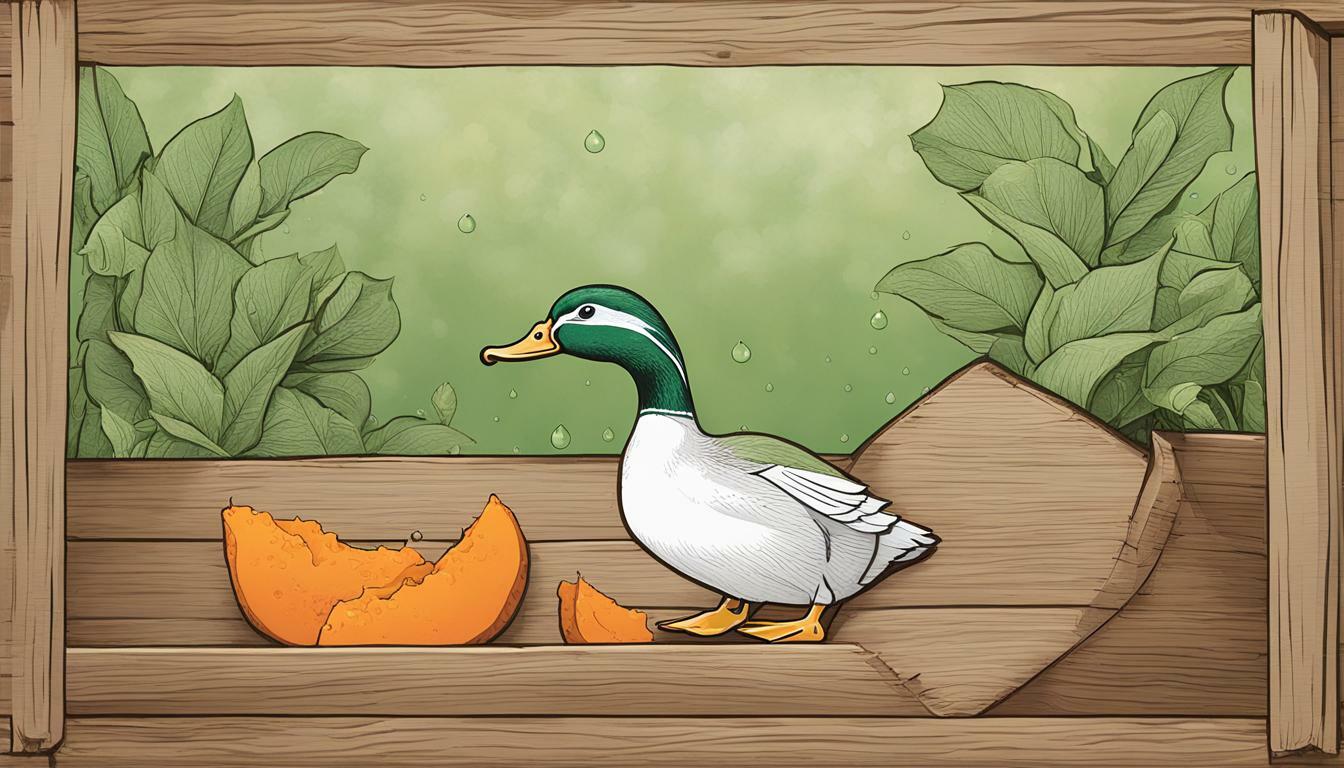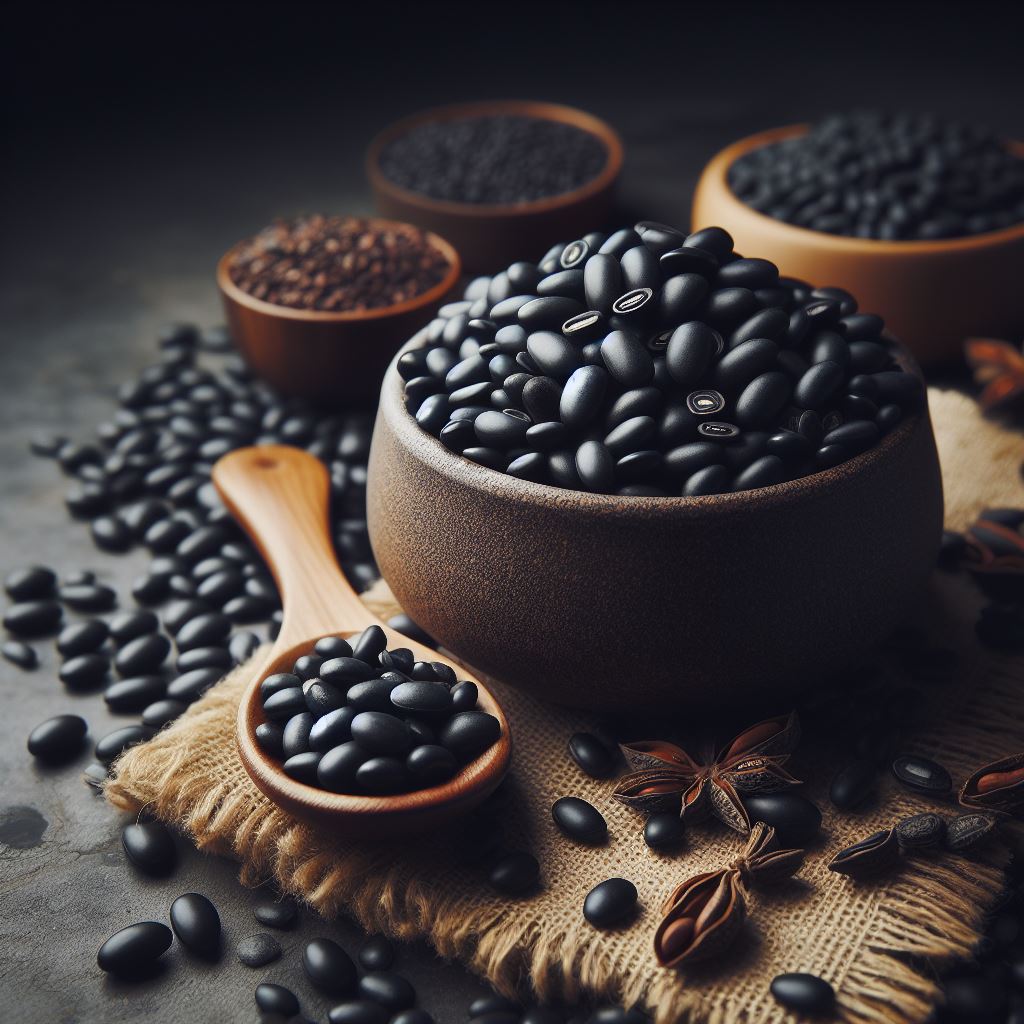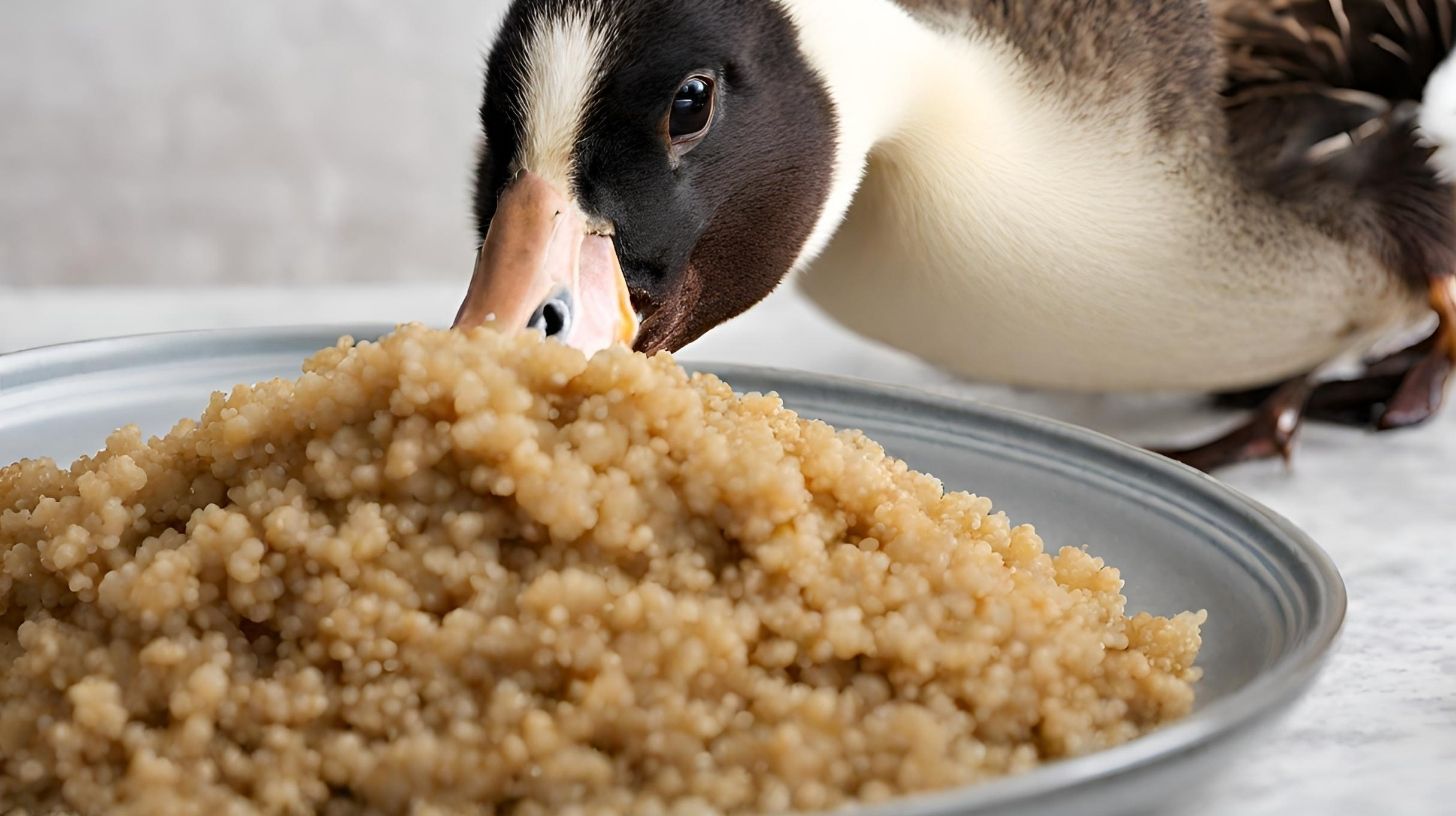Can Ducks Have Sweet Potatoes? A Friendly Guide for Duck Owners

Table of content:
- Feeding Ducks Sweet Potatoes
- Nutritional Benefits of Sweet Potatoes for Ducks
- How Sweet Potatoes Compare to Other Duck Foods
- Pros and Cons of Feeding Ducks Sweet Potatoes
- Should You Feed Ducks Raw or Cooked Sweet Potatoes?
- Healthy Ways to Prepare Sweet Potatoes for Ducks
- What’s the Best Way to Serve Sweet Potatoes to Ducks?
- Do Ducks Like the Taste of Sweet Potatoes?
- How Much Sweet Potato Can Ducks Eat?
- Alternatives to Sweet Potatoes for Ducks
- Can Ducklings Eat Sweet Potatoes?
- Final Thoughts
One vegetable that often comes up in discussions of what to feed ducks is the sweet potato. Sweet potatoes are packed with nutrients like vitamin A, vitamin C, and vitamin B6. At first glance, this root vegetable seems like it would make a great addition to a duck’s diet.
But can ducks eat sweet potatoes? What are the benefits and downsides? And how should you prepare and serve them? Keep reading for the ultimate guide to feeding sweet potatoes to ducks.
Feeding Ducks Sweet Potatoes
Sweet potatoes are growing in popularity for backyard duck owners. Though not a traditional duck food, sweet potatoes provide lots of nutritional value. And they are more widely available and affordable than some other options.
However, opinions still vary on whether sweet potatoes should be a regular part of a duck’s diet. There are some pros and cons to consider before serving them to your flock.
Nutritional Benefits of Sweet Potatoes for Ducks
Sweet potatoes are high in key vitamins and minerals that provide health advantages to ducks. Here are some of the top nutrients found in this vegetable:
Vitamin A
Sweet potatoes are an excellent source of beta carotene, which gets converted to vitamin A in the body. Vitamin A helps ducks to maintain healthy eyesight, aid in bone and muscle growth, and boost their immune system. It also acts as an antioxidant to remove harmful free radicals.
Vitamin C
In addition to vitamin A, sweet potatoes provide vitamin C. Vitamin C helps ducks absorb iron better to prevent anemia. It also keeps a duck’s skin and muscles healthy.
Vitamin B6
Sweet potatoes offer good levels of vitamin B6. This vitamin helps ducks convert the food they eat into energy. It also helps keep ducks’ red blood cell count up.
Potassium
This mineral found abundantly in sweet potatoes helps regulate water and acid balance in a duck’s body. Potassium allows nerves and muscles to function optimally.
Fiber
Sweet potatoes give ducks dietary fiber, which is important for healthy digestion. Fiber helps move food through the digestive tract and prevents constipation.
So in terms of vitamins, minerals, and fiber ducks need, sweet potatoes can potentially provide high levels. But are they the easiest or only way to get these nutrients? Let’s look next at how they compare to alternatives.
How Sweet Potatoes Compare to Other Duck Foods
Sweet potatoes have a stellar nutritional profile. But so do many other fruits and vegetables that are more traditional duck foods.
Green leafy vegetables like kale and spinach, for instance, are loaded with even more vitamins A, C, and K than sweet potatoes. They also provide calcium, protein, and iron.
Other fruits and veggies good for ducks include:
- Squash
- Pumpkin
- Carrots
- Peas
- Corn
- Bananas
- Berries
- Melons
These all have different advantages, like high fiber, vitamin C, potassium, or beta carotene.
Grains like oats, wheat bran and rice are great options too. They provide B vitamins, iron, magnesium and zinc.
So sweet potatoes aren’t necessarily better or worse than other alternatives. They add to the diversity of vitamins and minerals ducks can get from fresh foods. Offering variety is important so no one food has to meet every nutritional need.
Next let’s look at the benefits and downsides of sweet potatoes specifically for ducks.
Pros and Cons of Feeding Ducks Sweet Potatoes
Why might you want to feed ducks this root vegetable, and what are the potential downsides? Here are the key pros and cons:
Pros:
- Excellent source of vitamin A and beta carotene
- Contains other vitamins and minerals ducks need
- Provides dietary fiber for healthy digestion
- Low in fat and calories
- Affordable and readily available
- Provides variety to the diet
Cons:
- High sugar content compared to leafy greens
- Raw sweet potatoes may be hard for ducks to digest
- Too much vitamin A can cause toxicity
- Potatoes can develop mold if stored incorrectly
- Ducks may not eat them if mixed with tastier options
The vitamin A content is especially important to understand. While vitamin A is crucial for duck health, getting extremely excessive amounts can cause vitamin A toxicity. This leads to symptoms like bone deformities, fatigue, and respiratory infections.
So it’s about balance. Sweet potatoes as an occasional part of a varied diet provide great nutrition. But relying on them too heavily could pose problems.
Next let’s look at whether ducks should eat raw or cooked sweet potatoes.
Should You Feed Ducks Raw or Cooked Sweet Potatoes?
Sweet potatoes you buy at the grocery store meant for human consumption are typically cooked. But can ducks eat raw sweet potatoes too?
Raw sweet potatoes may be harder for ducks to digest. The fibers can be quite tough. Cooking softens the fibers to make digestion easier on your duck’s stomach.
Also, raw sweet potatoes have an indigestible compound called trypsin inhibitor. This can interfere with the duck’s ability to digest protein. Cooking deactivates most of this compound.
So for digestibility, cooked sweet potatoes are best. Boiling, baking, or microwaving all work great. Just let them cool down before feeding to your ducks.
If you do decide to offer raw, give them in small quantities. And provide plenty of fresh water to aid digestion. Keep an eye out for any signs of digestive upset.
Ideally combine raw sweet potato pieces with leafy greens, grains or other healthier fresh foods too.
Healthy Ways to Prepare Sweet Potatoes for Ducks
Sweet potatoes on their own are quite healthy. But what you add to them can change that. Here are some healthy preparation methods:
- Baked: Prick whole sweet potatoes with a fork several times. Bake at 400°F for 45-60 minutes until soft. Let cool and chop into bite-sized pieces.
- Microwaved: Pierce sweet potato several times with a knife. Microwave on high for 5-7 minutes. Let cool and chop.
- Boiled: Peel sweet potato and chop it into pieces. Boil for 15-20 minutes until soft. Drain and let cool before feeding to ducks.
- Steamed: Place sweet potato chunks in a steaming basket over boiling water for 10-15 minutes until tender. Cool before serving.
Avoid frying them or adding sugar, salt, butter or other unhealthy toppings you might use for human consumption.
The easiest way to feed cooked sweet potatoes is mashing them up. But you can also dice them into smaller pieces.
Chopped sweet potato pieces mix well into duck pellets or grains. You can hide them in there to encourage your flock to try the new flavor.
What’s the Best Way to Serve Sweet Potatoes to Ducks?
Offering sweet potato french fries free choice all day would be a bad idea nutritionally. Too much of any one food is unwise.
Here are some healthy ways to incorporate sweet potatoes into your ducks’ diet:
- As an occasional treat (1-2 times per week)
- In moderation as part of a balanced meal
- Chopped up and mixed into their feed
- Alongside their normal greenery like kale or spinach
- As 10-20% of their daily vegetable intake
- Alternate between sweet potatoes and other vegetables
A good rule of thumb is no more than about 1-2 tablespoons sweet potato per duck per feeding. Adjust amounts based on appetite and weight.
Splitting one average sweet potato 3-4 ways between your ducks is adequate. Observe if they readily eat this amount or lose interest after a few bites.
Offering sweet potatoes once or twice a week provides variety without overdoing it on natural sugar and vitamin A. Pay attention to preferences of your flock. Not all ducks love this veggie right away.
Always provide fresh clean water as well when feeding produce. This aids digestion.
Do Ducks Like the Taste of Sweet Potatoes?
Ducks have diverse tastes when it comes to fruits and vegetables. Certain ducks may love mashed sweet potatoes right away. Others may ignore them or need time to acquire the taste.
Compared to leafy greens, sweet potatoes are higher in natural sugar thanks to their starch converting to glucose. This sweeter flavor may be more attractive to some ducks.
The taste and texture of the skin and orange flesh also differs from greens. It may take them some getting used to.
Don’t get discouraged if your ducks don’t gobble up sweet potatoes instantly. Here are tips for getting picky ducks to try them:
- Mash or chop into smaller pieces to change texture
- Mix in with grains or pellets they already eat
- Offer alongside greens or fruits they enjoy to entice them
- Be patient and keep offering a few times a week
- Provide small portions and remove if uneaten after 15-20 minutes
- Set an example by eating them yourself!
Over time, your ducks may acquire a taste for this nutritious veggie. But if they continue to avoid them, don’t force it. Stick to produce they get excited for instead.
How Much Sweet Potato Can Ducks Eat?
It’s easy to overindulge on tasty sweet potatoes. But ducks need balanced nutrition, not unlimited potatoes.
As mentioned before, a good guideline is 1-2 tablespoons chopped sweet potato per duck per meal. Adjust up or down based on their weight and actual appetite.
Once or twice weekly is sufficient for most ducks. This prevents excess vitamin A and natural sugar intake.
Ideally their meals should include a variety of fruits, veggies, and grains. Sweet potatoes in moderation can complement their other nutrition sources well.
Signs you may be feeding your ducks too many sweet potatoes include:
- Digestive issues like diarrhea
- Decrease in appetite for their regular food
- Changes in droppings odor or color
- Lack of interest in sweet potatoes after initially gobbling them up
- Weight gain or obesity
If you notice any of these, scale back on the spuds. And consider getting your duck’s vitamin A levels tested if symptoms persist.
Alternatives to Sweet Potatoes for Ducks
Not all duck owners are convinced sweet potatoes should be a regular menu item. And that’s perfectly fine.
Ducks can get all the nutrition they need from a balanced diet without this particular vegetable.
Here are some great alternatives to sweet potatoes to feed your flock:
- Squash and pumpkins
- Carrots and yams
- Leafy greens like kale, spinach and lettuce
- Broccoli and cauliflower
- Peas, beans and lentils
- Fruits like berries, apple, grapes and melon
- Whole grains like barley, oats and wheat bran
Shop for organic produce when possible. And rinse thoroughly before feeding. Rotate different fresh foods to keep their diet interesting.
Focus on energy-dense carbs along with produce for best nutrition. Duck-specific pellets are designed to provide a full, balanced diet.
Can Ducklings Eat Sweet Potatoes?
Sweet potatoes offer lots of nutrition for growing ducklings. But babies have some unique nutritional considerations.
Ducklings require very high protein feed in their first few weeks for proper development. Commercial duckling starter feed is ideal for this.
At around 3-6 weeks old, you can begin offering ducklings small pieces of cooked sweet potato. Mix it into their starter feed to encourage interest.
Wait until 12 weeks old to introduce raw sweet potato. By this age, their digestive system should handle it better. But still only offer raw in small amounts.
For baby ducks, sweet potatoes are more of a supplemental treat. Keep feed optimized for ducklings as their dietary staple. Don’t let sweet potato pieces get in the way of them eating enough protein-rich starter feed each day.
Final Thoughts
Determining the best fresh foods to incorporate into your duck’s diet takes some experimentation. Their preferences and nutritional needs vary.
Sweet potatoes are growing in popularity thanks to their availability, affordability and stellar vitamin content. But they aren’t essential if your ducks don’t love them.
Hopefully, this guide gave you a good sense of the pros and cons of feeding sweet potatoes. Always provide a diverse diet and watch your ducks’ health and happiness. Adjust their fresh foods according to what they thrive on most!
Welcome. I’m Adreena Shanum, the proud owner of this website, and I am incredibly passionate about animals, especially poultry. I founded adreenapets.com as a labor of love, stemming from my desire to share my knowledge and experiences with poultry enthusiasts worldwide.




